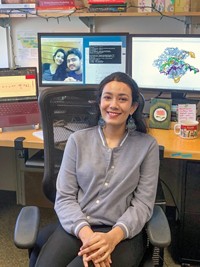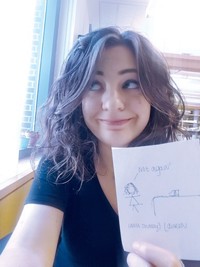Advertisement
Grab your lab coat. Let's get started
Welcome!
Welcome!
Create an account below to get 6 C&EN articles per month, receive newsletters and more - all free.
It seems this is your first time logging in online. Please enter the following information to continue.
As an ACS member you automatically get access to this site. All we need is few more details to create your reading experience.
Not you? Sign in with a different account.
Not you? Sign in with a different account.
ERROR 1
ERROR 1
ERROR 2
ERROR 2
ERROR 2
ERROR 2
ERROR 2
Password and Confirm password must match.
If you have an ACS member number, please enter it here so we can link this account to your membership. (optional)
ERROR 2
ACS values your privacy. By submitting your information, you are gaining access to C&EN and subscribing to our weekly newsletter. We use the information you provide to make your reading experience better, and we will never sell your data to third party members.
Policy
Translating Chemistry
January 21, 2008
| A version of this story appeared in
Volume 86, Issue 3
The interesting cover story "Championing Translation" (C&EN, Nov. 12, 2007, page 17) had an unexpected twist for us: Although we aren't directly involved in drug development, we provide an equally essential service to chemists around the world by translating chemical texts from foreign languages into English. Our work is critical to the scientific community, and yet remains largely invisible and poorly understood.
From individual scientists to multinational corporations, clients routinely need materials translated into many languages for information, publication, or patent filings. Machine translation can't handle such complex material except for crude "gisting," often with incomprehensible results in our fields. Poor translation is costly. Errors compromise safety, intellectual property, and image as well as the bottom line. Incorrect terminology in translation makes research disappear in keyword searches. Therefore choosing the right translator can ultimately save money and grief.
Being bilingual is no guarantee of written fluency or translation skill, and highly technical material requires highly developed subject area knowledge. If you don't know an alkane from an alkene—let alone understand a reaction scheme or patent abstract—chances are you can't translate it.
To choose the right translator, look for high-level mastery of both source and target languages, subject area expertise, and solid training or experience in the field of translation. And be sure to budget appropriately: You'll get what you pay for. The American Translators Association maintains searchable online directories (www.atanet.org/) that can help you match a skilled professional to your job.
Highly specialized translators like us combine both chemistry background and language skills to get chemists past the language barrier and meet a growing need in an increasingly competitive market.
Karen Tkaczyk
Gardnerville, Nev.
Matthew Schlecht
Newark, Del.
Cathy Flick
Richmond, Ind.




Join the conversation
Contact the reporter
Submit a Letter to the Editor for publication
Engage with us on Twitter